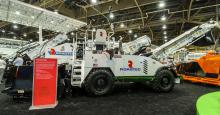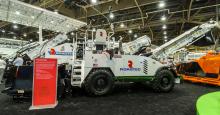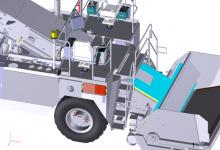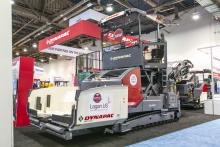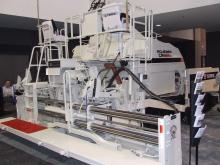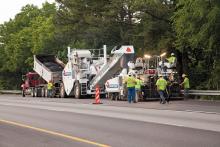Roadtec is unveiling its new MTV-1100e material transfer vehicle. The firm says that the new model has been designed from the ground up using experience developing MTVs, combined with customer feedback. It will not replace the existing and well-proven 2500 Shuttle Buggy, but will instead broaden the firm’s offering for the material transfer vehicle (MTV) market. The machine is being developed as an evolution of the firm’s MTV-1100e feeder model however and will not feature the remixing capability of the Shu
June 14, 2017
Read time: 2 mins
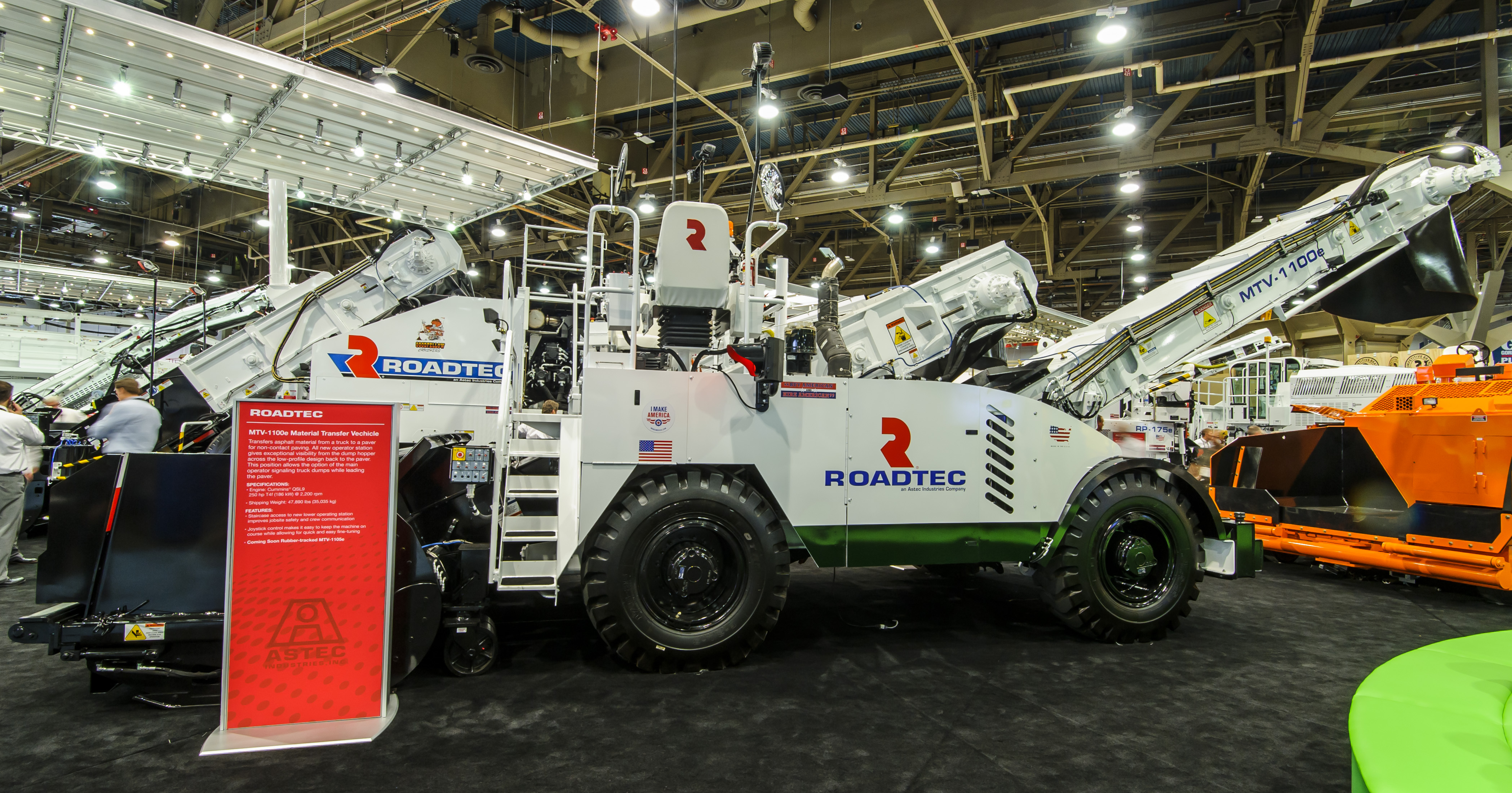
The new Roadtec material transfer vehicle offers high productivity
Roadtec is unveiling its new MTV-1100e material transfer vehicle. The firm says that the new model has been designed from the ground up using experience developing MTVs, combined with customer feedback. It will not replace the existing and well-proven 2500 Shuttle Buggy, but will instead broaden the firm’s offering for the material transfer vehicle (MTV) market.
The machine is being developed as an evolution of the firm’s MTV-1100e feeder model however and will not feature the remixing capability of the Shuttle Buggy. Instead it will be a simpler system designed purely as a feeder unit and this launch is intended to widen the firm’s product offering.
Power comes from a 196 Cummins QSB6.7 diesel rated at 186kW and which meets Tier 4 Final requirements. The 21.7tonne machine has a 227m Triple Pitch segmented auger and offers a capacity of 451tonnes/hour. The material transfer design of the 21.7tonne machine uses triple pitch augers in the dump hopper for mild re-blending before the material moves toward the paver. 1252 Roadtec achieves the most segregation correction possible by placing the focus in the dump hopper where the machine has the largest segment of mix to pull from. The machine design features anti-segregation technology to keep the material in the best condition throughout the transfer process.
The machine offers a low, machine-height profile, designed to keep the operator closer to the ground. The low height is said to provide the operator with a clear view of the surroundings and to communicate with the ground crew. A dual staircase with handrails flanks the machine, allowing workers to cross the paving train instead of between the machines.


